May Your Drug Price Be Ever Green
by Robin C. Feldman & Connie Wang
This is a full study of all drugs on the market that examines an avenue of pharmaceutical bad behavior. The study, which involved extracting and interpreting 160,000 individual data points covering all drugs on the market between 2005 and 2015, tracks each time that a pharmaceutical company extended its protection cliff. The study shows how drug companies repeatedly pile new protections onto each drug – ultimately blocking competition, keeping drug prices high, and preventing patients’ access to their medications.
The results demonstrate definitively that misuse of the patent and regulatory systems is not limited to a few pharma bad apples; it is business as usual throughout the industry.[…]
Informe del GRUPO DE ALTO NIVEL DEL SECRETARIO GENERAL DE LAS NACIONES UNIDAS SOBRE EL ACCESO A LOS MEDICAMENTOS
Nunca antes hemos tenido un conocimiento de la ciencia tan profundo ni han sido tan buenas las posibilidades de tratar todo tipo de enfermedades. Se han identificado muchas fuentes de enfermedades transmisibles y no transmisibles, por lo que la prevención, incluida la lucha contra bacterias, virus y parásitos, ha mejorado notablemente. Con las nuevas generaciones de medicamentos y sus combinaciones se están tratando pacientes cuyos pronósticos hubieran sido mortales algunos años atrás. El desarrollo de dispositivos médicos, la capacidad de combinar nuevos materiales y el uso de micro- e incluso nanotecnología y de la informática aumentan la seguridad de las intervenciones y sustituyen las funcionalidades naturales. El progreso en la investigación básica está haciendo posible una etapa excepcional del desarrollo de medicamentos, vacunas, diagnósticos y dispositivos médicos.[…]
Brazilian Competition Law and Access to Health in Brazil: Exploitative Pricing in the Pharmaceutical Sector
by Bruno Braz de Castro
This paper aims to analyze the interfaces between Brazilian Competition Law and the issue of access to medicines, with a special focus on abuse of industrial property rights and related exclusionary and exploitative effects. The paper analyzes the case law of Brazilian Administrative Council for Economic Defense (CADE) in the pharmaceutical sector and discusses abusive practices such as illegitimately imposing non-existent or invalid intellectual property rights with anticompetitive purposes.
It then addresses abusive strategies in the exercise of industrial property rights which are, in essence, valid: i.e., exclusionary practices, aimed at artificially raising barriers to entry; and exploitative practices, directly translated as the exercise of market power to the detriment of the consumer.[…]
Secondary pharmaceutical patenting: a global perspective
Pharmaceutical firms’ use of secondary patents to extend periods of exclusivity generates concerns among policymakers worldwide. In response, some developing countries have introduced measures to curb the grant of these patents. While these measures have received considerable attention, there is limited evidence on their effectiveness. We follow a large sample of international patent applications in the US, Japan, the European Patent Office, and corresponding filings in three developing countries with restrictions on secondary patents, India, Brazil, and Argentina. We examine cross-country comparisons of primary vs. secondary grant rates, consider the differential fates of “twin” applications filed in multiple countries, and undertake detailed analyses of patent prosecution in the three developing
countries. Our analyses indicate that measures to restrict secondary patents in developing countries are having limited impact. In none of these three countries are specific policies toward secondary patents the principal determinant of grant rates. Our analyses also suggest the importance of other procedural aspects of patent systems, beyond the formal policies targeting secondary applications, that affect outcomes for these applications in developing countries.[…]

